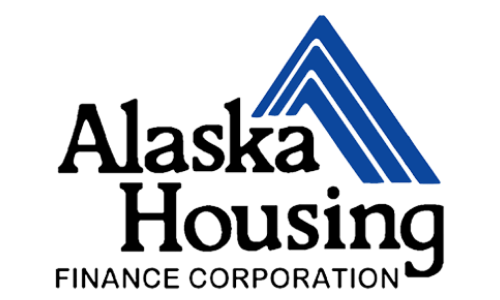Planning and Program Development
In addition to its work with Alaska Housing Rent Relief, the planning and program development department manages several statewide rental development, homeownership, and supportive housing programs. The department also performs research and analysis of housing market dynamics throughout the state to increase access to affordable housing for Alaskans.
Managed 16 active housing programs; 5 development programs, 11 service programs
Managed 155 active grant agreements, tax credit awards and contracts
Rural teacher, health professional, and public safety program underway for 2021
Leverage federal funds to increase affordable housing opportunities for Alaskans
Develop, implement, and manage grant programs that expand housing and supportive services
GOAL
Greater Opportunities for Affordable Living (GOAL) helps the private sector, regional housing authorities, and nonprofits build affordable rental housing for low- to moderate-income families and seniors.
-
In FY2021, Alaska Housing Finance Corporation received 10 applications for the Greater Opportunities for Affordable Living grant with proposals for housing in five communities. A concurrent rural round received one application. Combining both rounds, 277 new units were proposed along with 76 for rehabilitation, totaling $94 million in development activity.
Funded seven projects for 173 new units, 24 rehabbed
$59.4 million in economic activity
*Competitively awarded funding may be provided in the form of grants, federal tax credits and zero-interest federal loans.
Service Oriented Programs
Affordable housing programs managed by the Planning and Program Development department include $49 million in annual resources
-
Homeless Assistance Program that provides emergency or transitional housing and/or services to prevent homelessness or rapidly re-house those who have been displaced
Special Needs Housing Grant Program that offers competitive grants to nonprofit service providers and housing developers for construction of housing for the special needs populations, primarily beneficiaries of the Alaska Mental Health Trust
Sponsor Based Rental Assistance that provides both rental assistance and enhanced support services for tenants
Housing Opportunities for Persons with AIDS is the only federally funded program dedicated to the housing needs of people living with HIV/AIDS
Emergency Solutions Grant that serves the Alaska 501 Continuum of Care program that includes communities outside of Anchorage
Tenant Based Rental Assistance that provides eligible low-income families with financial assistance to obtain affordable housing
Grant Match Program that provides qualified Continuum of Care Program applicants with assistance to meet HUD’s Continuum of Care Grant match requirements and helps Alaskan Continuums to earn leveraging points in the national competition
-
Low Income Housing Tax Credits created as a part of the U.S. Tax Reform Act of 1986, is found in Internal Revenue Code § 42, and was designed to incentivize developers and investors to create and operate affordable housing
Teacher, Public Safety, Health Professional Housing that uses AHFC dividend funds and other sources for the development of teacher, health professional and public safety housing
Senior Citizens Housing Development Fund that contributes to more affordable senior housing in our state, which boasts the fastest growing population of seniors
HOME Investment Partnership that funds activities including building, buying, and/or rehabilitating affordable housing for rent or homeownership, or providing direct rental assistance to low-income people
Homeless Assistance and Special Needs Housing Grants
AHFC provides funding for emergency shelters and preventative programs for people most vulnerable to homelessness.
-
Number of Alaskans served per month as of June 30, 2021:
Emergency shelter, 563
Transitional Housing, 261
Prevention Programs, 152 (excludes federal COVID Housing Relief)
Permanent supportive housing, 329



